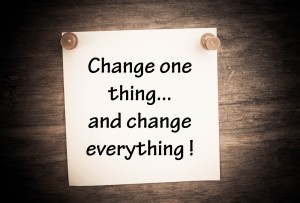It’s possible I’m twisting the original intent of Joseph Campbell’s quote, “Be the hero of your own story,” to fit my well-intended means.
On the surface, one might imagine I’m suggesting a Ptolemaic view of yourself in the world where everything revolves around you.
I’m not.
Instead, I view our lives and careers as more of a picaresque journey, where each of us is the roguish individual navigating a series of challenging adventures while discovering our true nature.
The goal, of course, is leave a trail of good in our wake. Slay the dragons threatening the villagers. Defeat the evil overlords. Use our newfound courage and emerging superpowers to help those in need.
Wonderfully, as someone responsible for the work of others—a manager or someone serving in a leadership capacity—you have a daily opportunity to leave people and situations just a bit better than how you found them.
 One act, one decision, and one encounter at a time, you can redress the damage of lousy leaders and miserable managers who preceded you. (More about these villains in a moment.)
One act, one decision, and one encounter at a time, you can redress the damage of lousy leaders and miserable managers who preceded you. (More about these villains in a moment.)
You can most definitely be the hero of your own story, without making the story all about you.
And you can prosper at the same time.
But first, the villains.
Of Miserable Managers, Lousy Leaders and Insidious Perfidious Coworkers:
I regularly encounter the impact of all manner of villains in my travels as a coach. (I saw them first-hand in my management and executive life as well.)
There’s the business owner who leads by anger.
 And the senior manager who decided it’s OK for one of the managers reporting to her to have 24 direct reports.
And the senior manager who decided it’s OK for one of the managers reporting to her to have 24 direct reports.
Don’t forget the manager who always takes credit.
And the individual contributor who never passes up an opportunity to stab the back of a coworker.
They come in friendly flavors as well.
The well-intended boss who can never seem to make a decision.
Or, the one who reverses decisions based on who he talked with last.
Or the one who cannot say, “No.”
The senior executives too worried about their jobs and their fiefdoms to recognize the nature of the managers and contributors identified above.
4 Leadership Questions to Help You on Your Daily Heroic Journey
Ask yourself these three questions daily, before starting work.
- What can I do today that will make the most difference for my team and firm?
- Am I prepared to help improve the situation at every single encounter today?
- At the end of our time working together, what will they say I did?
The first question focuses you on your purpose in your organization. If you don’t create the right results, your adventure grinds to a halt.
The second question reminds you that success is built one encounter, one crisis, one problem, and one discussion at a time. Habit begets mastery. The goal is to be at your best in every encounter. You’ll fail, but you will be trying harder than everyone else.
And the third reminds you that your interactions and approaches become the backstories and models for the people you encounter along your journey.
And then there’s one more.
It’s the last question of the day.
Review your journal. (You are keeping one, arent’ you?)
If there’s no journal, review the day in your mind.
4. Ask yourself: “What worked today?”
Redouble your commitment to doing more of what worked.
The Bottom-Line for Now:
You control whether you are the hero of your journey. You get to decide what type of leader you will be—not your boss. You are in control of your actions, decisions, and approaches in every confrontation, crisis, or encounter. You will fail and flail regularly. All heroes do. They also persevere, driven by a sense of greater mission and unflinching personal conviction to do right by others.
—








Leave A Comment